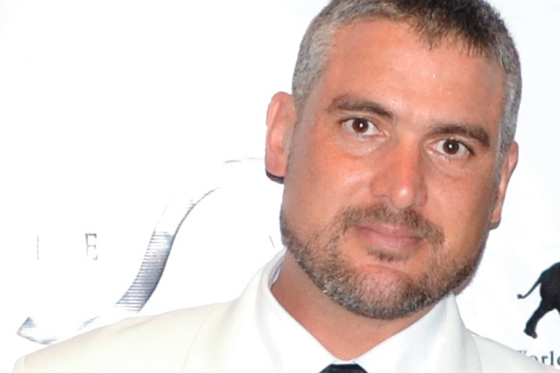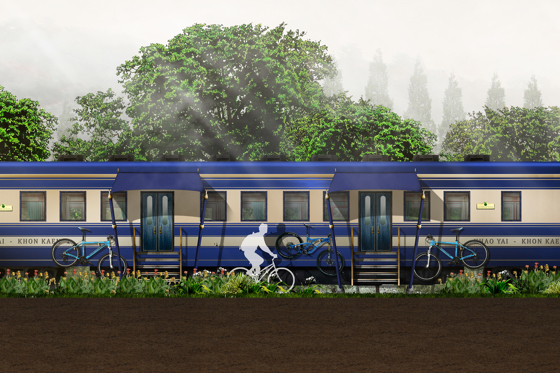While the pandemic has allowed Jason Friedman to work with clients on bigger picture challenges, it has also provided the managing director of Bangkok-based J.M. Friedman & Co. some more personal takeaways, with learns about loyalty at the top of his list.
“I think people used to feel very safe with a corporate job, and I think what I’ve learned is that a sense of safety within corporate doesn’t exist the way we thought it did,” said Friedman, whose small group specializes in small luxury hotel conceptualization, development, positioning, marketing and operations.
“Corporate was very quick to drop people. When I watched our independent hotels hang on to people for a year, even though the hotels were closed, I sensed a lot more loyalty at the independent owner level.”
(To read about Friedman’s COVID survival formula click here.)

Friedman could not stress enough making every conceivable effort to take care of the people that you work with.
“The pandemic isn’t their fault; it’s not our fault,” he said. “In a place like Shinta Mani Wild (a tented camp in Cambodia), and this probably goes for a lot of hotels, you spend a lot of money and a lot of time doing the pre-opening process, then you spend those first few years building the team and the personality of the hotel and getting all that right. It would be a shame and a financial disaster to lose all of that and have to start again fresh all over again next year…
“We also learned early on to be brutally honest with your staff about the situation and update them on a regular basis about the reality of the situation,” he continued. “When you operate in a remote place like Laos, the team might not be getting all the news that we’re getting about the situation. So, honest communication with our teams was also a really important thing to be done.”
Another takeaway: “Hope is not a strategy. Trust the scientists, trust the data.”
That said, when the pandemic is under control, Friedman believes that the industry will return to its usual ways of doing business. “It’s human nature. It’s all going to go back to the way it was before because that’s where it wants to be,” he said.
Friedman said he is already witnessing the return to normal in Thailand. “Travel is back. What will stay for a long time is mask wearing and alcohol on the hands,” he said. “There’s going to be no paradigm shift in human behavior as a result of this. We’re going to do what we have to do when we have to do it, and as soon as we can get back to the way we want to do it and like to do it, we’re going to shift back that way. I’m witnessing it in Thailand. We’re back to normal here, but we wear masks religiously.”

When it comes to future development, Friedman doesn’t expect developers will build differently as a result of COVID.
“Dealing with COVID is an operational thing; it’s not a construction thing,” he said. “I suspect that maybe 3,000-room hotels and crowded cruise ships are going to have an issue. I’ve always had an issue with those things anyway. I don’t like the mega-projects and maybe it’s about time those things disappeared, and maybe that’s what COVID is going to say – that overcrowding and industrial-strength tourism starts to go away.”
Those words are not surprising coming from an avid environmental who believes developers should be building hotels using the best practices of sustainability.
“Hotels that don’t damage the environment will be those hotels that prevent the future pandemics,” Friedman said. “Planting more trees on your property, creating more breezeways on your property, upcycling materials, recycling materials, following [designer and hotelier] Bill Bensley’s Sensible Sustainability Standards is the way forward. If you want to stop new pandemics, protect the environment. Global warming is real. We as hotel builders and operators, we have to be the ones that lead here.”
Friedman adds that the hotel industry should be using its platforms as builders and operators to influence guests on how to be better global citizens.
“Waste is not good. Single use plastics aren’t good. Let’s lead the charge,” he said. “We should use our influence to educate and convince people to be better hotel guests and better stewards of the planet. We have a lot of power as hoteliers. All the big brands, even the small independent hotels, have a voice. But we don’t use it effectively, and we should.”
When asked to give HOTELS readers reason for renewed hope as well as cause for concern, Friedman quickly said there are endless reasons for hope.
“My shoot-for-the-stars hope, my moon-landing hope is that those people that have not opened their eyes to the real effects that climate change and habitat destruction has on our lives will finally see what so many of us have known for years,” he said. “Hotels should be on the forefront of this movement by developing, implementing and educating consumers on the benefits and luxury of a sustainable lifestyle.”
He also points to how hotels are where people come together, where cultures interact and standards for global excellence are created and shared. “Let us use the power we have to influence consumers, to show them that disposable does not equal luxury and sustainability is sophisticated and leads to a happier, healthy and more fulfilling life. That’s my big hope.”
Conversely, Friedman’s big concern at the moment is the potential lack of a global response to the pandemic that embraces mask wearing, hand washing and social distancing. “I don’t see us getting back to what it was like to be a leisure traveler in 2019 for a couple more years. That’s my worry,” he said.
At the end of the day, Friedman suggests owners and operators stay the course, build hotels based on strong fundamentals and not consider get-rich-quick schemes.
“Build hotels for the future that are strong – not just physically, but also culturally and socially strong,” he said. “We’ll get through this and the hotels that will get through this are the ones that have those ethics and morals already in place.”

